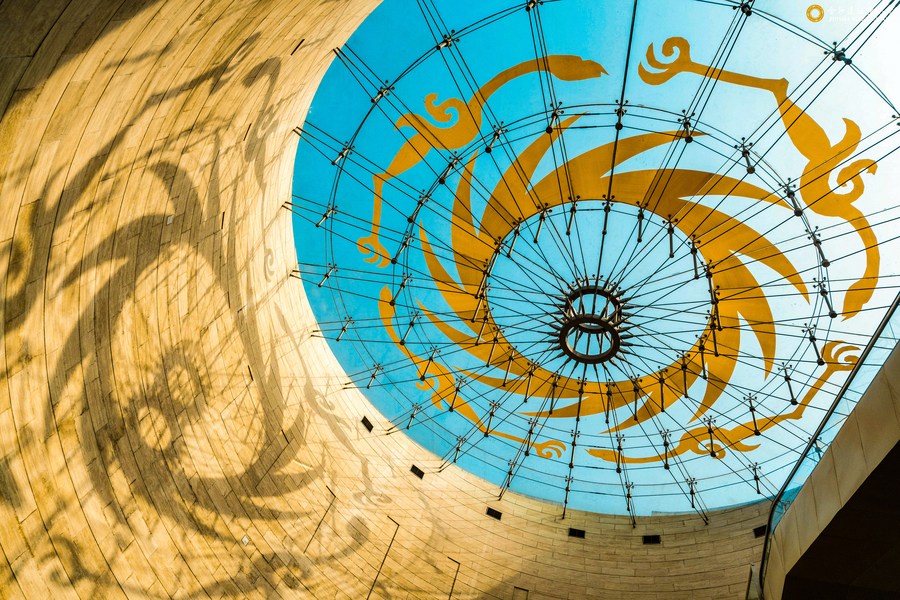Poetic allure of China's millennia-old "land of abundance"

This photo taken on March 10, 2023 shows a view of the dome of the Jinsha Site Museum in Chengdu, southwest China's Sichuan Province. (Photo by Zhang Yan/Xinhua)
CHENGDU, June 25 (Xinhua) -- At the Jinsha Site Museum, three seemingly unremarkable bronze artifacts from the Warring States Period (475-221 BC) bearing the inscription "Chengdu" have captured the attention of many.
The inscriptions on the three artifacts show that the name of Sichuan Province's capital has endured for over two millennia.
Nature reveals its spectacular reward in the city with a name steeped in history. The Chengdu Plain, long praised as a land of abundance, nurtured the magnificent ancient Shu civilization, whose splendor showcases sites such as Sanxingdui and Jinsha.
Today, people everywhere can witness the remnants of this civilization in museums and cultural heritage, such as the "Sun and Immortal Birds" gold ornament unearthed from the Jinsha Site, which has been deeply integrated with modern civilization and urban life.
This summer, the 31st FISU World University Games will take place in Chengdu, where the main stadium features the pattern of the gold ornament at the top of the building. Athletes from around the globe will gather beneath the gaze of the "immortal birds."
"Although the gold decoration is an artifact from 3,000 years ago, it embodies the Chinese people's reverence for light and symbolizes freedom, beauty, unity and progress. It's in line with the spirit of modern sports," said Zhu Zhangyi, the curator of the museum.
Riding on the rapid development of agriculture on the fertile plain, Chengdu gradually developed into a commercial city. Du Fu, the revered poet of the Tang Dynasty (618-907), eloquently described the city as a "famed bustling metropolis," capturing its prosperity and vibrancy.
During the Sui and Tang Dynasties (581-907), Chengdu stood among China's most renowned commercial cities, reaching extraordinary levels of prosperity.
Of particular note is the fame of Chengdu's Shu brocade, which became one of the most notable commodities along the Silk Road. It is also the origin of the city's nickname, "city of brocade."
A document from the period of the Five Dynasties and Ten Kingdoms (907-979) depicted the scene of Western merchants selling Shu brocade on the Silk Road.
As a testament to the city's rich heritage, the fusion of the traditional craftsmanship of Shu brocade and modern design in the award ribbons of the medals of the upcoming games will serve as a tangible representation of Chengdu's millennia-old cultural legacy.